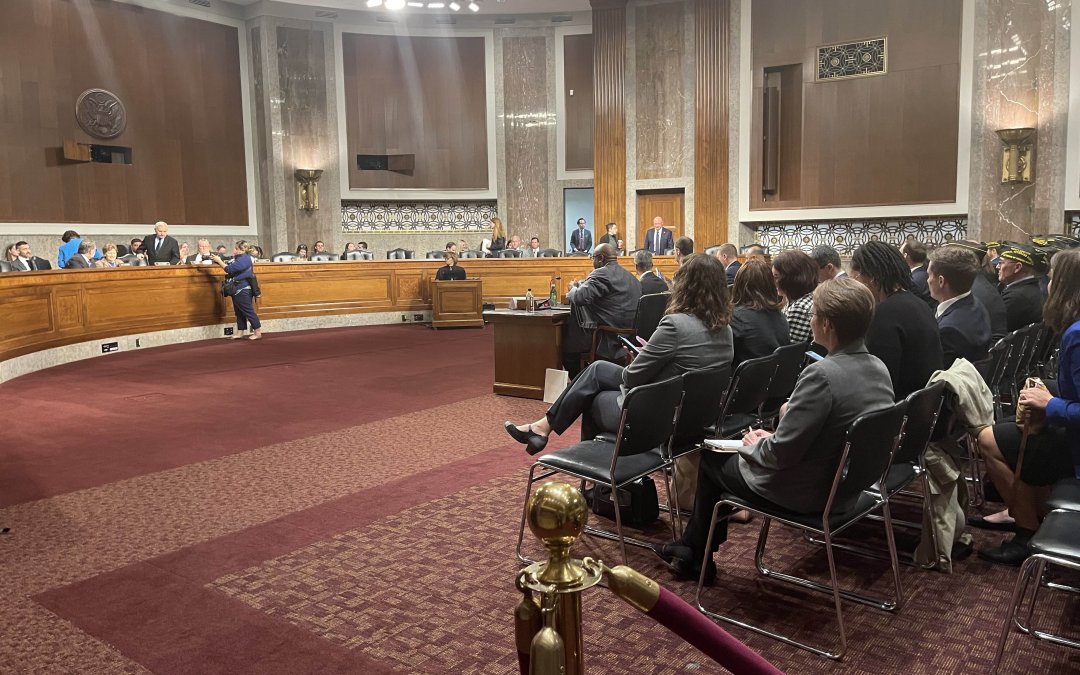WASHINGTON — Veteran advocates on Wednesday warned senators that a majority of the more than 200,000 armed service members who leave the military each year may be largely unaware of mandatory government services intended to provide them with educational, mental health and career benefits.
Witnesses at the hearing — a rare joint committee session of the Senate’s Armed Services and Veterans’ Affairs Committees — criticized the Transition Assistance Program, or TAP, which aims to help service members adjust to civilian life after they leave the military.
A Government Accountability Office report in 2022, however, found that 70% of service members did not start TAP at least one year before leaving the military, even though it is generally required. As a result, the program, established in 1991, is largely unknown to those who need it the most, especially junior service members and officers, one of the witnesses testified.
“A failed transition can have devastating consequences like unemployment, homelessness and even suicide,” said Ryan Gallucci, executive director of Veterans of Foreign Wars.
Gallucci touted the proposed TAP Promotion Act, which would allow service members to have access to an accredited representative from a recognized Veterans Service Organization to discuss transition benefits at any point in their military career.
Kevin O’Neil — a veteran who now serves as the Employment and Education Policy Associate at the American Legion — said he was lucky enough to know exactly what he wanted to know after his service: return to school. But many other veterans do not have that privilege, he said, underscoring why it’s important that information about transition services is readily available.
Some witnesses criticized the operations of TAP itself, rather than the program’s outreach methods.
Arthur DeGroat, executive director of the Office of Military and Veteran’s Affairs at Kansas State University, said the current TAP system does not account for significant changes in workforce patterns over the past few decades.
Prior to 9/11, armed service members often used to transition into leadership positions in manufacturing, DeGroat said. Those looking to transition to civilian life today, however, have to fill service jobs for “knowledge workers” that require skills veterans may not have, he added.
“Today, we find our post-9/11 era veterans having a greater transition challenge than any other previous generation and having to serve as pioneers as the first generation of veterans to face such a major cross-battery career transition,” DeGroat said.
Wednesday’s hearing featured two panels, with one made up of non-governmental groups and advocates. The other panel, whose members testified first, consisted of government officials from the GAO and the Departments of Defense, Labor and Veterans Affairs.
Senators at the joint hearing, including Armed Services Committee Chair Sen. Jack Reed (D-R.I.), questioned the government officials on the efficacy of the Transition Assistance Program, citing the GAO’s findings.
John Sawyer, director of education, workforce and income security at the GAO, offered possible solutions from the report. The GAO, he said, has asked the Department of Defense to examine why TAP is not reaching all service members, even though it is a requirement. The Defense Department has all the information it needs to complete this assessment, he added.
“We believe that better understanding root causes for attendance and timeliness results will help the DOD improve service members’ ability to benefit from the full range of transition resources available to them,” Sawyer said.
Some witnesses were staunch in their defense of the military’s transition program, including Ashish Vazirani, an acting undersecretary of defense.
Vazirani said that his department is examining potential barriers to TAP. He also touted several programs besides TAP for transitioning veterans, including SkillBridge, a Defense Department program that aims to provide service members with civilian work experience through apprenticeships and internships.
“Our duty is to ensure that a successful service member is a successful veteran,” Vazirani said. “Service members are better prepared for their transition today than at any other point.”


